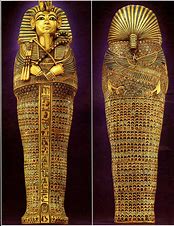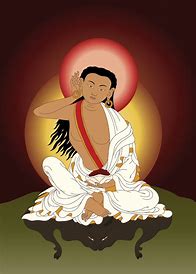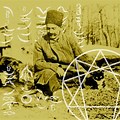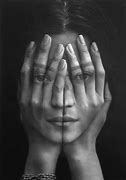Remembrance Of Fragrance Past





Remembrance Of Fragrance Past
The details of burial, the herb that was used to ward off sickness, and the statues of gods are all typical of classical regression. Dr. Brian Weiss, Through time into Healing.
Memories are in our cells, or in the spaces between them, or in their electromagnetic field or aura. Cellular memory has long been reported by bodyworkers, such as aromatherapists, reflexologists, rolfers, and shiatsu, kinesiology, acupressure and connective tissue massage (CTM) therapists amongst others. During body-work, when certain parts of the body are being manipulated, earlier events in this life, and past lives are sometimes released and recalled.
A different perspective has been put on this subject by heart and lung transplant patient Claire Sylvia, co-author of A Change of Hear. At the age of forty-eight, after the transplant, she developed a new liking for chicken and beer, and experienced the sensation that another person was within her. In a dream, she met "Tim L. 'who, after some research, she discovered was in fact the young man whose organs had been donated to her following a fatal motorcycle accident.
These two dimensions to the subject of memory are interesting enough, but there are more. Richard is a lighting engineer for an American ballet company, and was on tour with them in Germany. The coach stopped for a break in a layby near a hamlet, and Richard came out to stretch his legs. He felt drawn to walk down a path between two houses until he came to a pond. At this point he can't remember what happened, but the others told him later.
Apparently, he'd started shouting and yelling and waving his arms about, obviously very distressed. Some residents came out of their houses and figured out he must have something to do with the coach, and they brought his companions to the scene. Richard was speaking German, a language he had never studied, and explained to the coach driver that he was a German soldier drowning in the pond, having fallen through the ice. There are tens of thousands of recorded cases of people experiencing other lives, many of them including xenoglossy which is the ability to speak fluently in a foreign language without having learnt it in this lifetime.
These feelings, of having died in another palce and time, happen to children too. I can think of one little girl living in rural Ireland, who remembered being hit by a truck on a road in America - a place she'd never been - and described the red and white logo on the side of it. The parents were intrigued by this as they lived a very simple life without TV or Coca-Cola, and the girl was not familiar with American culture, let alone place names. Subsequently, they took their daughter to the USA and confirmed the details.
Another little girl, who was three at the time, told me she'd left a family behind and didn't 'belong' in her current family. Suddenly, like a window into another world, she stopped being three, and spoke with the vocabulary of an adult. She told me she'd been a man, married with children - giving the wife's name - and had died falling off a fun-fair carousel. Then she noticed a flower, and, enraptured by it, ran off and was three again.
Many books have been written about past-life experiences, usually those that have emerged during hypnosis. We have, then, several ways of recall: hypnosis; always knowing, as in the case of children; suddenly realizing, as in the case of Richard; and through body-work. There is another route into the past - through aroma which can bring back memories not only of earlier events in life, but in lives experienced before.
Many contemporary religions beiieve in past lives, while others have in the past adhered to this doctrine but no longer do. Hinduism and Buddhism teach reincarnation believing that the soul must pass through many lifetimes, each one teaching valuable lessons, until the spirit reaches perfection and can ascend to a higher place. Rebirth was a concept long accepted in the Jewish tradition until the nineteenth century. Today it remains part of the teachings of the Hasidic sect, and has continued through the mystical Judaic tradition of Kabbalah. Amongst Christians, it was accepted until Emperor Constantine, in Ad 326, decided to edit references to it out of the texts.
Where are the past life memories coming from? Some would say they are not about spirit transference, reincarnation of one spirit into the body of a person at a later time. Rather, that our DNA, or the etheric energy enfolds it, carries memories of activities/emotions experienced by our direct ancestors. Depending on whether a gene is active or recessive, we inherit hair and eye colour, body shape and other physical characteristics. But we also carry things for which no genes have been found, such as generosity, meanness, the love or fear of certain things can somehow be replicated, perhaps there are other, energetic, 'genes' that carry memories, and the emotions that are associated with them.
Reference: The Fragrant Heavens: The Spiritual Dimension of Fragrance and aromatherapy: Valerie Ann Worwood
Fragrance And Transition -The Long Tradition





Fragrance And Transition - The Long Tradition
In the ancient world, fragrance was an essential element in funerary rites. In genesis 49:33, jacob 'yielded up the ghost' and in 50:2, '...Joseph commanded his servants the physicians to embalm his father'. in 2 Chronicles 16:13-14, King Asa 'slept with his fathers', and was laid 'in the bed which was filled with sweet odours and diverse kinds of spices prepared by the perfumer's art'. Some versions of the bible say 'apothecaries' art'. An account of the death of the Persian king Yezdijird, in Ad 652, says he was embalmed with spices and perfumes; while the ancient Egyptians, as we know, used a great deal of fragrant material in mummification.
Fragrance has deep symbolic meaning to our ancestors who considered it a gift from the gods. It was, indeed, seen as both an expression of the divine, and as something that conferred divinity or immortality. The fragrant sap of trees - the resins of many ancient incenses - was seen as the sweat of tears of the gods; while the unaccountable loveliness of scents from flowers and herbs were seen as tools of divine inspiration.
The ancient Taoists, with their eyes ever on transformation, noted that a solid incense stick becomes, with fire, a fragrance which disappears in the air, while the ancient Roman writer Lucretius was struck by the idea that the soul is part of the body, as fragrance is part of a piece of frankincense resin. He wrote of death, 'the breath of life is driven without...scattering abroad like smoke.'
So important to the ancient Greeks was the custom of anointing the limbs of the departed with perfumed oil that they felt obliged to do this also to their greatest enemies if there was nobody else around to do it. After a cremation, at which incenses would be thrown on the fire, the bones and ashes were washed with wine, mixed with precious ointments, and placed in a funeral urn.
At one point in Homer's Odyssey, the practice is described: 'But with the flames your body has consumed, With oils and odours were your bones perfumed...' According to Eugene Rimmel, 'Perfumes were thought such an essential part of funeral ceremonies that scent-bottles were painted on the coffins of the poorer class of people as a sort of empty, consolation for the absence of the genuine article.' Fragrances were daubed on tombs, and scented flowers strewn around.
All this was too much for the writer Anacreon, who thought the precious fragrances should be enjoyed in life.
- Why do we shed the rose's bloom
- Upon the cold insensate tomb?
- Can flowery breeze or odour's breath
- Affect the slumbering chill of death?
- No, no; I ask no balm to steep
- With fragrant tears my bed of sleep;
- But now while every pulse is glowing,
- Now let me breathe the balm flowing;
- Now let the rose, with blush of fire,
- Upon my brow its scent expire....ODE 32
The most extravagant user of aromatics in ancient Rome - in death as in life - was the Emperor nero. At his wife, Poppaes's funeral, it's said that more incense was consumed than could be produced in 'Arabia' in a year. The Romans put ashes and bones in urns with perfumes, like the Greeks, and the more perfume that was used, the more wealthy the departed were or the more loved they were said to be.
For thousands of years in India, the funeral pile has contained scented woods, such as sandalwood, spices, fragrant gums and resins. The main centre for these fragrant materials is the town of Gazipur, conveniently located for their biggest market, the Hindu spiritual centre of India, Benares, just a little down river on the Ganges.
Muslins in Pakistan associate fragrance very closely with Heaven and say 500 angels gather near a person who has died and, just before the body is sprinkled with scents by the attendants, the angels sprinkle perfume brought from heaven. When the soul leaves the body, it i smeared with the fragrance of paradise and transported to Heaven.
In Japan, the youngest child sets fire to a pile of fragrant wood, and fragrant materials are also thrown upon it; while in China, at least until a hundred years ago, the body was perfumed, much incense was burnt, and those in the funeral procession carried burning fragrant material.
The reasons for using fragrance when making the transition are many, including the idea that the rising smoke literally carries the spirit of a person to higher realms. Because sweet smelling fragrance was so strongly associated with the heavenly realms, a person was expected to be aromatically acceptable when they arrived there. It was through aroma that the dead and the eternal met.
Muslims of the Indian subcontinent have traditionally burnt incense, which might include benzoin, sandalwood or patchouli, in an oodsoz, or censer, and this is lit at the moment of death, and placed by the feet of the body. In the United Arab Emirates, perfuming the body is done partly so the deceased should be sweet smelling when meeting God, but also because fragrance is said to attract angels and banish evil spirits. This idea has been, and continues to be, very widespread, right across the world.
Not everyone can bear the idea of dying. The Chinese in particular have a long tradition of seeking 'the herb of immortality' or 'the fungus of immortality', and many great tales have been written around characters who made the heroic attempt to locate them. Describing one such 'Gold medicine', in Ad 400, is Ko Hung (Pao Pu Tse):
The medicine should be prepared on a famous mountain.... The compounder... should perfect the purification and ointment of the body with the five perfumes... when the medicine is made, not only will the successful manipulator be immortal, but all the rest of his family will become immortal as well.
Reference: The Fragrant Heavens; The Spiritual Dimension of Fragrance and Aromatherapy: Valerie Ann Worwood
Using Essential Oils For Making The Transition






Using Essential Oils For Making The Transition
Which essential oils you use is entirely a matter of personal choice. The essential oils are profiled in chapter 11, and you may find that or other sections in these pages useful. If you like flowers, pick from the flower essences, and if they are not right for you there are also herbs, fruits, seeds, woods and resins to choose from. When you are happy with a fragrance or blend, you may find your perception of the odour changes, as you are on the journey of your own soul-fragrance evolution.
Blends have a delight all of their own, and a richness which is perhaps appropriate at this time, although many people have a single favourite fragrance which can be found in essential oil form and may prefer that.
Here is just one suggestion
| Rose Maroc | 2 drops |
| Jasmine | 2 drops |
| Hyacinth | 1 drop |
This is quite a heavy fragrance but if only a small amount is used the aroma is sweeter and lighter: the strength depends on the dilutions you use. The effect will be very different if you use 2 or 8 drops in a diffuser. It is always better to use smaller amounts to begin with, then see if the person making the transition would like more.
Spritzers
One way fragrances can be used is in a spritzer which mixes water and essential oils together. Boil some water with the essential oils added, keeping the lid shut tightly. The ideal thing for this is a stainless stell pot used for making herbal infusions or for cooking. allow it to cool, without opening the lid, and place in a fridge for twenty-four hours. When you take it out of the fridge there may be still some oil floating on the top, which can be spooned off and used in a diffuser. The water that remains will have a delicate light fragrance, ideal for spraying around the room or on the body. For those who like to use Frankincense in a blend, use only a small amount as it can overpower the rest of the fragrances when used in this way.
Hydrolats
Another way of using natural, water-based fragrance is to blend hydrolats, which are the floral waters left after distillation. Rose and Orange flower (neroli) are just two of the fragrances that could be used, and ideal for spraying rooms, bedclothes and around people, as they have antiseptic properties as well as delicious fragrance. However, because only the water soluble components of the plant remain in the water, the hydrolat will not smell exactly the same as the flower. Lavender hydrolat not at all like the lavender we know so well, and rosemary hydrolat can be quite camphorous.
Reference: The Fragrant Heavens: Valerie Ann Worwood
Making The Transition








Making The Transition
We make plans throughout our lives and even plan our funeral, but seldom do we plan our own death. This is not the case with Tibetan lamas. who place great store on the abandonment of grasping, yearning and attachment. They give everything away before death, if possible of course, so there will be no argument over the distribution of the physical possessions, which could negatively influence the next incarnation.
Some, at what they consider the right time, simply close their eyes and release the spirit. in other cultures, especially nomadic ones, old people choose to be left behind if they are having difficulty keeping up, and starve to death. However, most of us do not embrace or accept death in this way; we fight it tooth and nail and think that by planning for it we're giving in.
The more usual scenario is that we experience some-one else dying, and find ourselves making plans for the funeral, if not death itself. Flowers are an essential part of most funeral practices, perhaps because their fragrance brings a special atmosphere to the event. When Mother Teresa died in 1997, flowers that looked like tuberose surrounded the coffin, ad I wondered if this was her favourite flower, and whether they had been in the room as she made her transition.
Certainly, this very aromatic flower would have filled the room with its heady perfume; as essential oil of tuberose equally would have done.
Aromas are so personal, its impossible to suggest essential oils to use at this most important time. This is the time to use fragrances we have loved, that induce in us peace and joy. If we are too weak to organize it ourselves, friends and family can be asked to get the essential oils diffuser, so that the enveloping etheric clouds of fragrance can accompany us on the journey 'home'.
Make sure you use pure, natural essential oils, rather than the man-made synthetics which, to the untrained eye and inexperienced nose, can be disguised to look like the real thing. If ever there was a time we returned to nature, it is this - our true nature. We all have an image perhaps of what the afterlife will be like, but one thing is almost certain, there are no man-made chemicals in Heaven.
People who have died and been resuscitated, and had near-death experiences, notice delightful aromas: we will breathe in the fragrant heavens as we pass over. But when we are lying there, waiting for this to happen, what do we smell? Let us hope it is not the urine of a patient in the next hospital bed, or a nurse with body odour. Even in the comfort of our own home, we may not appreciate the smell of frying coming from the kitchen. Unpleasant odours will make it harder to find any beauty there may be in death.
This is the one time in life to embrace the beautiful: thinking of the wonderful things we have done in our life, and of the special people we have known; and, hopefully, being in the company of people who shower us with their unconditional love. Sweet-smelling aromas, well-chosen and sensitively used, contribute the beauty of nature to the dying experience. And in a hospital ward, it attracts people to the area, making it less lonely.
- Sogyal Rinpoche, author of Tibetan Book Of The Living And Dying, has said:
What counts at the moment of death is whatever we have done in our lives. Help the dying person not to face-death empty-handed, help him or her to mind meaning in his or her life, even if he or she has many regrets now he can make the end of his life meaningful.
Our state of mind at the moment, a change of heart at the time of death, can influence our future and powerfully transform our karma. Our last thoughts and emotions before death have a powerful and determining effect on our immediate future. The quality of the atmosphere when we die is important. When someone is dying we should do all we can to inspire positive emotions, sacred feelings like love and compassion....
If love and emotion can be expressed, the tears allowed to fall, before the actual moment of death, the spirit can be released undistracted. This brings us to a very important point. If preparing essential oils for someone who is dying, don't think of it as a portion to draw them back to the living. No earthly fragrance can bring them back. Think of it as simply providing a pleasant atmosphere in which they can pass over, or as a cloud of delicious fragrance to waft them on their inevitable way; our last, parting gift.
Reference:The Fragrant Heavens: Valerie Ann Worwood.
Articles-Latest
- Koran burning conviction sparks fury as blasphemy law 'returns to UK'
- Robert Francis Prevost - Pope Leo XIV
- Pope Francis' death follows recent health challenges. Here's what we know about how he died.
- Easter April 2025 - international Celebrations
- The Rule of the twelve psalms -Worthy is the Lamb
- Religion in Africa Before Christianity and Islam
- 6 The Origin of Yahweh
- Dumo Di Milano
- What Did the Crow Tribe Believe In: Discover The Beliefs!
- 7 Reasons Historic Christianity Rejects the Book of Enoch
- 8 Breathtaking Mountain Monasteries Around the World
- Ethiopian Bible is oldest and most complete on earth
- Muhammad Muhammad was a prophet and founder of Islam.
- World Day of the Poor – SVP Christmas Campaign 2024
- Pope Francis to open 5 sacred portals on Christmas Eve — for a ritual that’s never been done before
- The 144,000 in Revelation
- Over 73 dead bodies 'used for meditation', 600 crocs in a pond, found in two Thai temples
- Occultism: Western Occult Tradition
- What is a Mudra
- Blood Sacrifices: Ancient Rituals of Life and Death
Articles-Most Read
- Home
- Let There Be Light
- Plants that feel and Speak
- The Singing Forest
- The Singing Forest-2
- Introduction
- Meditation
- Using Essential Oils for Spiritual Connection
- Heaven Scent
- Plants that Feel and Speak-2
- Purification
- Making the Spiritual Connection
- Anointing
- Essential Oils: The unseen Energies
- The Sanctity of Plants
- The Aroma Of Worship-Foreward
- The Aroma Of Worship - Introduction
- Methods Of Use
- Spiritual Blending
- Handling and Storage






